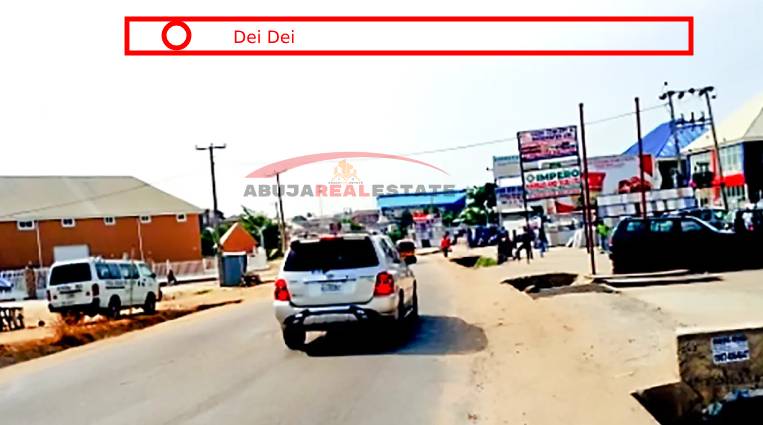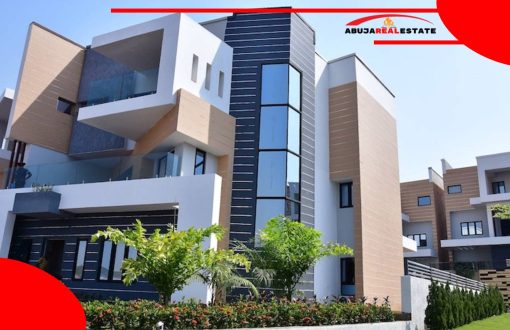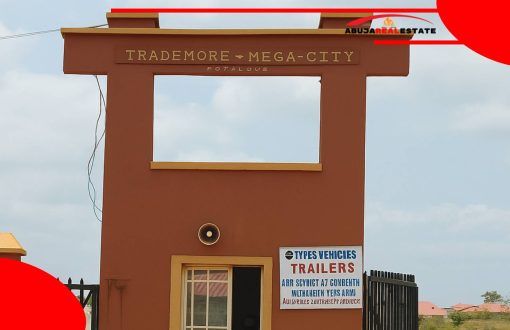Dei Dei is the Best Place to Buy Quality Products at Low Prices; It is Also a Strategic Location for Investment. Here is Why.

Dei Dei is often overlooked in favor of more glamorous or commercialized districts. But make no mistake — if you’re hunting for top-quality products at unbeatable prices, or you’re seeking a strategic location to invest in, Dei Dei is a goldmine. In this article, we explore all the compelling reasons why Dei Dei is a hidden gem for buyers, traders, and investors alike.
1. Overview of Dei Dei: What Makes It Unique
Dei Dei is a bustling suburban district within the Abuja Municipal Area Council (AMAC). Though it began as a settlement area, it has rapidly grown into a thriving commercial and real estate hub, well-known across Nigeria for its building materials market, vibrant local economy, and accessible land for development.
Unlike areas like Wuse or Garki that cater to high-end retail and diplomatic residences, Dei Dei remains authentic, affordable, and community-driven. It’s where everyday Nigerians do serious business — and where astute investors are now turning their eyes.
2. Affordable Prices for High-Quality Products
The most outstanding reputation of Dei Dei comes from its Building Materials Market, which is one of the largest in West Africa. But that’s just the tip of the iceberg. Whether you’re looking for:
- Construction materials like tiles, cement, roofing sheets, and wood,
- Household appliances,
- Electronics,
- Furniture,
- Or even agricultural supplies,
You’ll find quality brands sold at dealer-level prices, often 30–50% cheaper than in central Abuja. Because Dei Dei serves as a distribution center for many suppliers, buyers cut out the middleman and get bulk or wholesale prices even on single-item purchases.
3. Diversity of Available Goods and Services
Dei Dei is more than a place for cheap cement or blocks. Its market ecosystem is incredibly diverse, with hundreds of specialized traders offering:
- Spare auto parts
- Plumbing and electrical fixtures
- Interior décor and fittings
- Borehole and irrigation equipment
- Vehicle and motorcycle sales
- Tailoring services, car repairs, salons, and even tech repairs
This diversity makes Dei Dei a one-stop market, attracting consumers from surrounding states like Niger, Kaduna, and Nasarawa.
4. Strategic Location and Accessibility
Strategically situated along the Zuba–Kubwa Expressway, Dei Dei connects easily to major routes leading into central Abuja and outward to northern states. It lies just:
- 20 minutes from the Central Business District,
- 15 minutes from Kubwa, a densely populated residential area,
- 10 minutes from Bwari, home to institutions like Nigerian Law School and JAMB Headquarters.
Additionally, its proximity to rail and intercity bus terminals means goods and people can flow easily in and out — a major plus for businesses and logistics companies.
5. Real Estate Growth and Investment Opportunities
The real estate boom in Dei Dei is undeniable. What used to be mostly undeveloped land is now a sprawling mix of:
- Residential estates
- Commercial warehouses
- Shops and showrooms
- Mechanic villages
- Guest houses and lodges
Land is still relatively affordable, but prices are rising fast as developers race to meet the housing demand of Abuja’s growing population. Whether you’re looking to buy-to-let, build a warehouse, open a store, or start a logistics hub, Dei Dei offers some of the highest return on investment (ROI) potential in the Abuja property market.
Also Read: Abuja Zip Code: Complete Guide to Abuja Districts Postal Codes
6. Thriving Business Environment
Dei Dei’s economy thrives on entrepreneurship, trade, and industry. The massive foot traffic ensures that shops and services experience daily patronage. The local government has also started supporting small and medium enterprises (SMEs) through:
- Infrastructure development (e.g., road grading and lighting),
- Market expansion efforts,
- Small business funding and cooperative societies.
Whether you’re in retail, construction, manufacturing, or service delivery, Dei Dei gives your business a real fighting chance to succeed due to its low entry costs and broad consumer base.
7. Employment and Human Capital Availability
Another factor that boosts Dei Dei’s appeal is the availability of skilled and semi-skilled labor. From masons and carpenters to electronics technicians and logistics assistants, the area is home to thousands of workers who are:
- Highly experienced, especially in building and related trades,
- Readily available for contract or full-time work,
- Affordable, compared to labor costs in central Abuja.
This ready workforce reduces costs for investors setting up new businesses and also contributes to the area’s rapid pace of development.
8. Safety, Community, and Culture
While parts of Abuja struggle with rapid urbanization and disconnected communities, Dei Dei offers a rich communal atmosphere. Most residents and traders operate in a closely-knit, safety-conscious environment, supported by:
- Local vigilante groups,
- Police posts and mobile patrol units,
- Strong community associations.
Despite being a fast-growing urban hub, Dei Dei still maintains the traditional values of neighborliness and collaboration, which makes it attractive for families, especially middle- and low-income earners.
9. Government Interest and Infrastructure Projects
Dei Dei has caught the attention of the Federal Capital Development Authority (FCDA) and private developers. Major public and private infrastructure projects are underway, including:
- Road dualization and drainage improvement
- Street lighting
- Water supply projects
- Upgraded markets and loading bays
These efforts are not just beautifying the area but unlocking more real estate value and improving ease of doing business. Investors who get in early will benefit from the appreciation that typically follows infrastructure upgrades.
10. Testimonials from Residents and Business Owners
Ask around, and you’ll hear story after story of people who started small in Dei Dei and grew big. A few examples include:
- Hassan Abdul, a building materials trader who started with one shop in 2018 and now owns a full plaza.
- Grace Okonkwo, who moved her furniture business from Wuse to Dei Dei and saw profits triple due to lower operating costs and higher customer reach.
- Yusuf Ibrahim, a real estate developer who bought three plots in 2020 and now sells them for over 3x the original price.
The general consensus? Dei Dei works — for buyers, sellers, and long-term investors alike.
11. Future Outlook and Development Trends
Dei Dei is far from reaching its peak. Several upcoming trends are reshaping its future, including:
- E-commerce and warehousing: Its centrality makes it ideal for logistics hubs.
- Real estate gentrification: More modern estates are springing up.
- Tech adoption: Traders and businesses are now integrating mobile payments and online marketing.
- Private-public partnerships: Future plans for markets and transportation hubs.
All indicators point to a bright, sustainable future for this booming district.
Conclusion
Dei Dei is no longer a hidden corner of Abuja — it is an emerging powerhouse for trade, real estate, and long-term economic growth. If you’re looking for quality products at unbeatable prices, Dei Dei delivers. If you’re a smart investor searching for high-yield opportunities, Dei Dei stands out.
With its strategic location, growing infrastructure, affordable land, strong business ecosystem, and loyal customer base, Dei Dei is undoubtedly the place to watch — and the place to invest.


